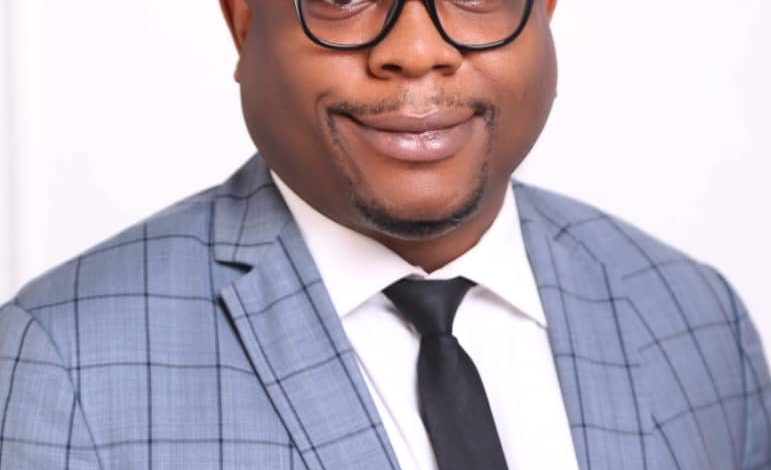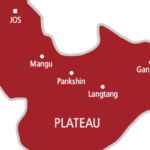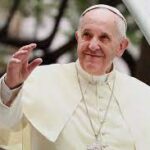By Lemmy Ughegbe, PhD
Historically, the NBA has defended the rule of law and faces a controversy challenging its principles and public image. A ₦300m donation from the Rivers State Government to the NBA’s 2025 conference is central to this controversy.
The donation was allegedly made under suspended Governor Siminalayi Fubara. In response to the NBA moving the event to Enugu because of alleged federal political interference in Rivers State, newly appointed administrator Ibok-Ete Ibas requested a financial reimbursement.
The NBA’s decision has sparked intense public discussion and internal review regarding the requested funds’ return, approval procedures, and the deal’s ethical and legal implications. The AsMembersl experts, civil society, and the public.
If the Association’s handling of the issue is scrutinised, the central question revolves around the ₦300m. Was it a gift or payment contingent on the NBA hosting in Port Harcourt? That question remains unresolved because only Siminalayi Fubara can credibly answer it.
Yet, the embattled governor has retreated into silence on this explosive issue. His silence harms everyone, especially the NBA, which faces damaging rumours and reputational harm. In the absence of an express statement from the donor, speculation thrives. Suspicion often fills the void of clarity in public affairs.
A more profound question presents itself: What allowed the governor to donate such an enormous amount to a private association with no apparent budgetary allocation? Did the Rivers State Appropriation Act include the ₦300m? If this isn’t the case, what law allowed the use of public money for what’s a private professional meeting?
Many professional bodies seek funding from government officials; this is not to feign ignorance of that fact. They should all clean up their processes to avoid the same embarrassment the bar association faces.
This highlights the arbitrary use of state resources by Nigerian Governors, who show little accountability to the public or legislature. The governor’s significant expenditure lacked scrutiny, highlighting deeper problems with fiscal governance. This cannot be ignored just because the recipient was the respected NBA.
There is also a legal dimension to this. Most states’ public finance laws mandate a formal process for spending, usually involving executive council approval, procurement processes, or legislative authorisation. Were any of these steps taken?
The NBA insists the funds were donations without stipulations; this type of state support is not unusual. Chief Emeka Obegolu (SAN), head of the Conference Planning Committee, said the NBA regularly gets public and private groups funding to pay for its yearly conference. While there is nothing inherently improper about seeking support, the problem here is perception, scale, and transparency.
Even if we accept that point, the NBA’s position doesn’t explain its continued retention of the money to a sceptical public. Nyesom Wike, a former governor known for his outspokenness, implied that a ₦300m donation from Fubara influenced the NBA’s objections to President Tinubu’s emergency rule declaration in Rivers State. Wike argued, insinuating that the payer dictates piper’s tune, that if Fubara gave the NBA such a significant “gift,” their opposition to President Tinubu is understandable.
Despite the argument’s conspiratorial edge, it mirrors a familiar feeling. This shows how biased perceptions, however unfair, damage trust. That the NBA is indebted to Fubara, in this instance, damages its ethical image and prompts questions regarding its neutrality and integrity as an institution.
When an institution like the NBA, which should be the conscience of the legal profession, finds itself entangled in such allegations, the damage extends beyond this incident. Institutional judgment and accountability are called into question. Particularly concerning is the questionable prudence in how the NBA received financial support from the Rivers State Government. If the NBA required support for its Port Harcourt event, a more transparent, needs-based approach would have been preferable.
The NBA should have requested that the Governor shoulder the costs of hotels, security, and logistics rather than giving them a lump sum of cash. That would have more clearly defined the purpose and spending, and more significantly, it would have protected the Association from its current predicament.
The acceptance of a direct monetary “gift” by a professional body from a state government creates a delicate balance between partnership and patronage. The NBA’s weak boundaries have invited the accusations of partisanship they now aim to deny, risking undermining its ability to act as an impartial guardian of the law.
More troubling, the NBA might have unintentionally fallen into a governance trap. As Nigeria’s foremost legal body, it should exemplify transparency, constitutionalism, and financial propriety. Instead, it now stands accused of having compromised itself—whether or not that was ever the intent.
And this is not merely a reputational challenge. It is a governance dilemma. When a public body like the NBA cannot model accountability in its engagements with the government, it weakens its capacity to demand the same of others.
It sends the wrong signal to the public, young lawyers, and institutions that still look to the Bar for ethical direction. Regardless of location, the Bar will continue to be haunted by that unaddressed failure long after the conference concludes.
Regardless of whatever divide one may belong to, it is now an incontrovertible fact that the Bar Association’s nose has been bruised. The nature of its response will determine whether the bruising festers into an institutional fracture or begins healing. The burden now rests on the NBA’s leadership to choose between institutional ego and public ethics.
What, then, should the NBA do? First, it must break away from the instinctive defensiveness that has so far defined its public engagement on the issue. Transparency must replace opacity. Auditing the ₦300m or proposed expenditure and publicly disclosing the results would help restore confidence. If the funds were partially used for preparatory activities in Port Harcourt before the relocation, publicly announce this. If not, and if the money is untouched, then the moral and professional path is to return it—fully or proportionally.
Second, the NBA must start internal reforms to prevent a recurrence of such ethical entanglements. It may be time to review the Association’s fundraising policies and require Executive Council approval for large donations from government sources.
The public must never again wonder whether the Bar has become the Bench’s business partner. Where money changes hands between public officials and private associations, a rigorous framework of accountability must be in place to guard against influence—real or perceived.
Third, the NBA should address this issue internally and use it as a rallying point to advocate broader reforms in public finance administration. The ease with which Governors dish out public funds without budgetary approval is an affront to fiscal discipline and democratic accountability. The controversy provides a sobering reminder that Nigeria’s budgetary governance architecture remains weak and vulnerable to abuse.
The ₦300m conundrum is more than a scandal—it reflects the Nigerian state’s fragility and the vulnerabilities of its most sacred institutions. While the NBA’s intention may not have been impure, its handling of the matter has lacked clarity, tact, and moral foresight. And that has come at a cost. Its nose has been bruised. Whether the bruising festers or heals will depend on its next moves. The NBA must now weigh its options carefully, choosing between the temporary discomfort of restitution and the long-term erosion of public trust.
The choice is stark but simple: Cling to legal technicalities and watch credibility dissipate, or choose transparency, sacrifice, and principle and begin a long walk back to redemption.
Lemmy Ughegbe, PhD writes from Abuja



